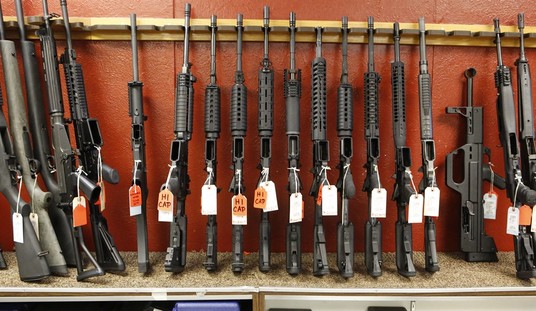When the New York Times ran its hit piece last week on the Lake City Army Ammunition Plant and its production of ammunition for both the civilian market and use by the armed services, it was easy to see that the story was just the opening act in a new bit of political theater. As I wrote at the time, “I’ve been covering 2A issues long enough to recognize the pattern here; a major media outlet ‘uncovers’ something it portrays as a problem, and then anti-gun politicians and gun control groups start demanding action be taken.”
It’s been a week since the Times ran its first story, and now the paper has unveiled the second act; this time featuring anti-gun senators and representatives in starring roles.
After the Times article, several members of Congress questioned the benefits of the Army’s arrangement with Olin Winchester, the current contractor, and demanded more information from the Army.
In a letter to the Army Secretary on Friday, Representative Robert Garcia, a Democrat from California, said that “federal subsidies may be artificially increasing the availability of ammunition in the civilian marketplace and contributing to serious violence by private citizens.”
The letter continued, “This raises serious questions about the role the Department of the Army has played in subsidizing the firearms industry and the level of oversight that the Department has exercised in supporting the plant’s operations.”
Mr. Garcia cited The Times’s reporting, as well as a subsequently published Bloomberg article about Lake City.
Lake City has been run by contractors since the 1940s, but this is suddenly an issue now? Remington was in charge of the operation until the mid-1980s when Olin won the contract to oversee production. In 2001 Alliant Tech Systems/Orbital ATK took over as the contractor in charge of the plant, and Olin Winchester began its oversight of the facility in 2020. While the facility hasn’t produced rounds for the civilian market over that entire time period, the Times acknowledges that’s been the case since at least 2011, so this isn’t exactly breaking news. But as Democrat politicians and the gun control lobby have started to include ammunition restrictions in their anti-2A to-do lists, Lake City makes for an inviting target given the government ownership of the facility.
Earlier this month Mr. Garcia, along with Senators Elizabeth Warren of Massachusetts and Richard Blumenthal of Connecticut and Representative Debbie Wasserman Schultz of Florida, introduced a bill aimed at putting more controls on ammunition sales — which are largely unregulated — by requiring sellers to obtain a federal license and to conduct background checks on buyers. It would also limit bulk sales of ammunition and prevent so-called straw purchases, in which a buyer with a clean record turns around and sells to someone else.
In a statement, Ms. Warren criticized the Lake City contract and called for “meaningful oversight” by Congress.
“It’s unconscionable for the U.S. government to be in the business of making military-grade ammunition to sell to civilians,” she said.
The goal here is obvious; force the Defense Department to change the terms of its contract to forbid sales of Lake City ammo to the civilian market, even if that puts the ability to scale up military production when necessary at risk. In its original report, the Times quoted Assistant Secretary of the Army Doug Bush, who told the paper that the military doesn’t maintain or improve ammo plants because of economics, but “to ensure we have government-owned production capacity for military-specific items that we can surge in case of a conflict.”
Another Defense Department official quoted by the paper maintained that “commercial utilization brings lower costs to the Army and taxpayer, and keeps a skilled work force better positioned to respond to surge requirements,” noting that a 2021 study “found that the government received a 10 to 15 percent discount on ammunition by allowing commercial sales.”
The Times even acknowledged that the “vast majority” of the billions of rounds of ammo that have been produced at Lake City and sold to civilians have never turned up at crime scenes, but that’s of little concern to the anti-gunners who want to drive up the price and reduce the availability of .223 ammunition for the civilian market. They’re already plotting Act Three of this kabuki theater; Senate hearings where DoD officials can be grilled about the decision to allow Olin Winchester to produce rounds destined for gun stores across the country and politicians like Elizabeth Warren can pound their fists and demand an end to the practice.
The prohibitionists would much rather institute a complete and total ban on the sale, manufacture, and possession of modern sporting rifles, but they’ll be happy to go after the most common ammunition for MSRs in the meantime. So what if it puts national security and military readiness at risk? If that means a cowardly killer has to pay a little more for the ammunition they use to carry out their next mass murder in a “gun-free zone”, that’s a sacrifice the anti-gun zealots are ready to make.









Join the conversation as a VIP Member